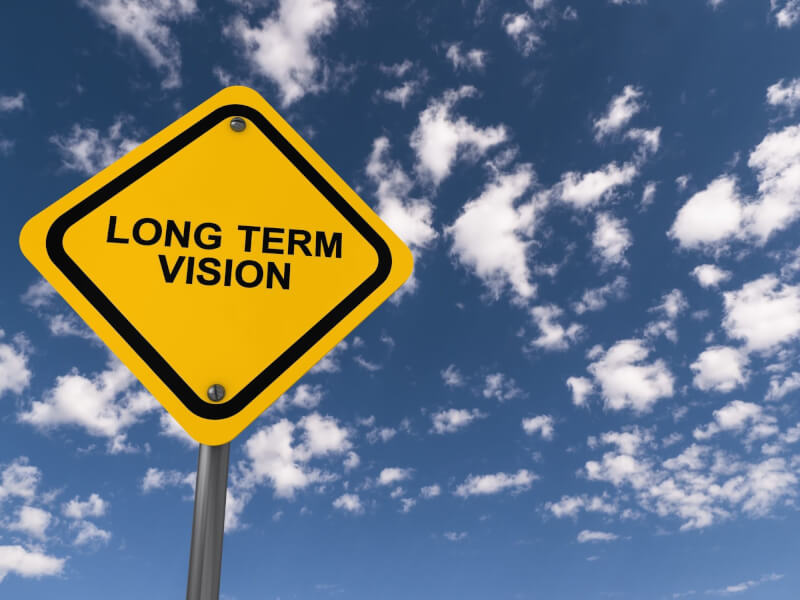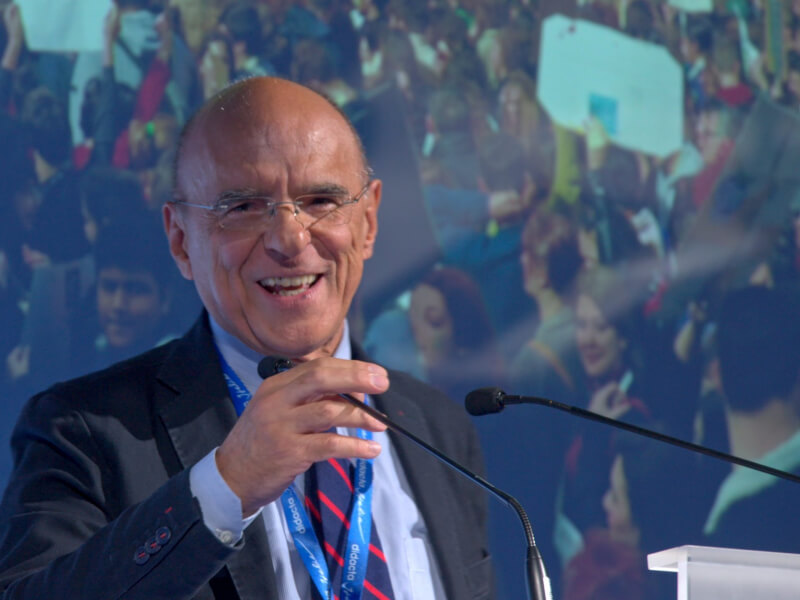17 January 2023 – Europe needs to be leading the charge to a more sustainable world, but is being held back by short-termism and poor policymaking, argues Systemiq’s Janez Potočnik.
“Co-operation in a fragmented world” is the title of the gathering of the great and the good at Davos this year. First Covid-19, then the war in Ukraine and a summer packed with extreme weather events have left global commodity chains, like much else in the world, in a fragmented state. Shortages, and fears of shortages, are stretching European economies.
The immediate goal is to protect people and ensure they can eat and heat their homes this winter. Looking to the future, though, the only way to reduce fragmentation is through systemic change, where cooperation replaces exploitation, and circular economies leave people and the planet less open to disruption and destruction.
The EU is highly dependent on imports. During the last decade, the region imported over half of its energy. In 2021, the EU imported more than 40 per cent of its total gas consumption, 27 per cent of oil imports and 46 per cent of coal import 54 scarce and economically important raw materials, Europe imports 90 per cent of them fully. Recent data shows that of the 30 raw materials the EU classifies as critical, 19 are predominantly imported from China, a country where Covid restrictions and impacts continue to negatively affect the production and supply of goods. The price of these resources is also increasing.
A successful energy transition depends on being able to source the right materials in the right quantities at the right time. “There are some hard facts: without secure and sustainable access to the necessary raw materials, our ambition to become the first climate neutral continent is at risk,” said European Commission President Ursula von der Leyen in the 2022 State of the Union Address.
The Commission is preparing new rules on critical raw materials. It is important these do not lead us to replacing one dependency with another. EU policies should not simply be aimed at securing access, but also at minimising critical raw material needs. They must examine ways to decrease the use of all materials, improve resilience and minimise the negative environmental, health and social impacts associated with the extraction, use and end of life of these resources.
Today we are experiencing a polycrisis. When people are in a crisis, they often take quick, drastic measures, just as the EU is doing to secure enough gas to get the continent through the winter. Such actions are necessary and understandable. Yet, we must also keep our eye on the longer term and think about change that would break with the status quo and reduce the risk of crisis in the future.
Lessons could be drawn from the experiences of farmers this summer. Those who produce food in more ecologically responsible ways and protect their most precious resource, namely fertile soil, were better prepared and more resilient during the floods and droughts than their peers focused solely on short-term gains.
Three critical blind spots in policymaking
Systemiq recently published a report with the Club of Rome and Open Society Foundations that identified three main blind spots in policymaking, which are stopping Europe become similarly resilient and better ready to face the challenges of climate change and geopolitical disagreements.
The first problem is that few leaders take a holistic system change approach to the challenges they face. In the case of climate change, the prevailing focus is on reducing carbon emissions, while questions around resource implications, overconsumption, inequality, air pollution, water crisis, health and education needs are often dismissed. The result is policies that potentially lead to trade-offs and future lock-ins, instead of synergies and multiple benefits.
Second, too few policymakers take the time to examine the root causes of a problem and to address the drivers and pressures behind it. They fail too often to see how our current system does not incentivise sustainable resource use, but encourages quite the opposite. Consumers and companies are told it makes most economic sense to destroy nature – trees are only worth something when they become timber.
Third, policy attention is mainly given to the supply side of the economy, while the demand side is largely ignored. Reducing and stopping wasteful production and consumption patterns should be the focus of all policies. For example, decarbonising the production of steel is only part of the solution – systemic change also demands that fewer cars are produced to address emissions and reduce traffic congestion. Addressing demand-side consumption in western countries will also help address the questions about who is responsibility for climate change and the widening political gap among high and low-income countries.
Standards and behaviour patterns linked to today’s economic model were set by high-income countries, which continue to pursue their ambitions at the expense of others (mainly low-income countries). High-income countries are ethically bound to show the world they are willing and able to change a reality they have created, and to lead the essential transition – at home and globally.
This will also get us closer to essential questions of responsibility (high-income countries having the majority share in emitting CO2) and equity (low-income countries delivering the resources, with the high-income countries making the most profit).
In this sense, Europe can and should lead this change, but all countries have a role to play in cooperating to create a better, more coherent future that is more resistant to shocks and much less dependent on destroying nature in the name of profit. Leaders at Davos would be well advised to support this vision for all our sakes.
First published in Business Green.






